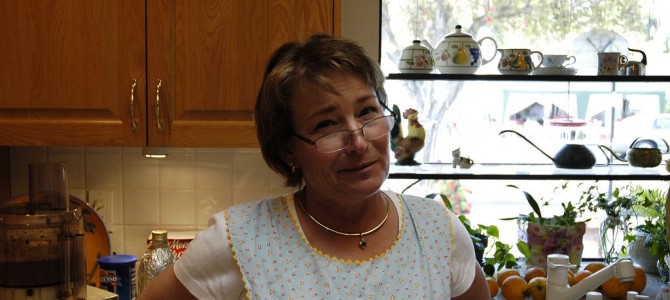
My mother and her mother didn’t always get along. Okay, they never got along. My mother’s parenting philosophy could be summed up succinctly: she intended to do the opposite of whatever her mother, my grandmother, did. One thing my mother did retain from her upbringing, however, is a heavy reliance on tough love and an expectation of responsibility from an early age. Every fall, every illness, every complaint was met with my mother chiding my dramatic (justified or not) reaction with the admonishment, “You’re fine.”
My mother, like my grandmother, also refused to be a short-order cook. Although my mother was one of four children and I am an only child, both mothers were short on time and even shorter on patience. I thought of both when I read a piece in The New York Times Dining and Wine section titled “Chicken Fingers Are Off the Menu.”
Why had the author taken chicken fingers off of the family menu? Because one of her three children had “decided,” at the wise old age of nine, to become a vegetarian. The author was thus left wondering how she could possibly prepare meals that would appeal to all three of her children. She discusses different solutions, which she’s learned appeal to every member of her household: several recipes with chickpeas, and a rosemary white bean dip. She explains, “She [the author’s daughter] eagerly sticks Post-its into my dusty copy of “Bean by Bean,” and leaves it on the kitchen counter.”
Reading that sentence, I actually heard my mother and grandmother cackle from beyond the grave. One of my very first memories is sneaking into the kitchen in the middle of the night as a three-year-old to make myself a bologna sandwich because I had skipped what was in my mind an unappetizing dinner, and my mother had refused to make another. My mother heard the refrigerator door opening and closing and came downstairs to see me making a sandwich on the kitchen floor, without a plate, around midnight. Her response? “Oh, finally.” She helped me finish making it, and next week she taught me how to make every other kind of sandwich under the sun. By age six I was making my own lunches, having evolved into an expert sandwich chef.
Good Character Has Rewards
Now, I don’t have a nine-year-old yet, but I was once one. I was, in fact, an incredibly picky eater, as anyone who knew me then can attest. My mother left precooked dinners or dinners I or my teenage babysitter could prepare. At nine years old, I was able to make my own dinner of Soup Secrets or macaroni and cheese, not to mention every kind of frozen meal under the sun. Was I the healthiest eater? Heavens, no. But I did learn a few important lessons:
- My mother’s life did not revolve around my whims.
- If I wanted something, it was up to me to make it.
- An orange a day can prevent scurvy.
Was my mother cruel? Was she lazy? Many of my friends’ parents thought so. My friends were jealous I could make myself dinner every night, especially because it was mac and cheese.
Fast forward to my early teen years, and my mother, who had expected me to complete minor tasks like making a sandwich in my toddler years or a microwave dinner in grade school had stepped up her game. I was practically running entire parts of the household solo. I handled some of the bills, balanced checkbooks. There were even a few credit cards that were in both of our names. Those credit cards were my responsibility: I charged to them, I paid them in full with my own money—earned babysitting and by doing chores—and was expected to do so on time. At restaurants, calculating the tip was left on my shoulders. At the doctor’s office and hospitals, giving medical history and insurance information was, as well. My mother’s friends told her that she was making me grow up too soon, that it was too much responsibility for a young girl to manage on her own with minimal supervision.
When I was 16 years old, the unthinkable happened. While I was studying abroad during my junior year of high school in Belgium, learning how to navigate trains, buses, and bars across Europe, my single mother’s already-failing health took a turn for the worse. On Christmas Eve, she called to tell me that her kidneys and liver had shut down, and it appeared her lungs were in the process of doing so, as well. I was on a plane 36 hours later, and 36 hours after that I made the decision to remove her from life support.
After my mother died, all of the lessons I was taught about balancing checkbooks, paying bills, and living as an adult went from supervised practice runs to reality. At 18 years old, I was living in a studio apartment alone in the Bronx, going to school and working, both on a full-time basis. I hit some bumps in the road in the beginning; my power was turned off once because I forgot to pay the bill. Overall, though, my first year on my own in the adult world, living hand-to-mouth in a cockroach-infested apartment in a seedy neighborhood, was fairly uneventful. I was able to keep my head above water with bills, time management, and cooking because my mother forced all of these responsibilities on me when I was “too young.”
My mother, thankfully, never believed in such a thing. Her philosophy was “if she’s able to do it, she’s not too young.” Parents might think that getting three healthy meals into their picky eaters a day is the best thing for their future health. But catering to a young child’s every demanding whim is unhealthy, no matter the calorie count of her dinner.









